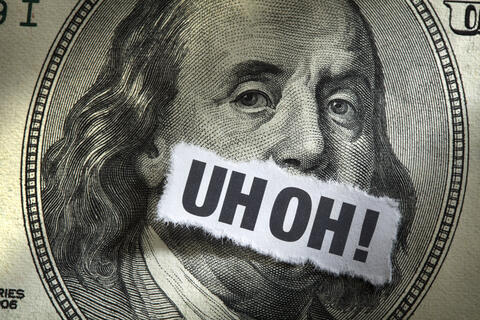
Dr Renáta Kosová, Associate Professor of Economics at Imperial Business School, explains how decisions made about where and when to open hotels reflect the wider tendency of investors to follow the herd
What drives investment during the good times? Is it astute financial advice? A deep understanding of the market? Confidence that a certain product is right and timely? Or – as many people suspect – are investors carried away by a rush of money and vulnerable to so-called “herding” – imitating the decisions or actions of the others? And if so, how do such investments made in the good times subsequently perform?
In the US, a hotel room earns about $53 a night. Using data on hotel revenues and other detailed insights into the US hotel market, we’ve shed light on the wider phenomenon of herding. In other words, do investors tend to copy other investors’ business decisions during economic booms?
Why did we look at hotels? The available information has several benefits: unlike commonly used financial databases that typically offer only information aggregated at company level, our data give(s) specific details about revenues and characteristics of every single hotel. But there’s another significant advantage: the information covers more than 30,000 branded hotels in the US as well as independent facilities, so the results show prevailing behavioural trends, rather than the good or bad decisions of a few companies.
In addition, we have detailed information about each hotel, from location, to when the investment was made, through to who owns it, and whether it’s economy, luxury or somewhere in the middle. This, combined with reports on how well these hotels perform sometimes decades after they were built, allowed us to drill down to an extraordinary level of detail that just isn’t possible in other sectors, where information isn’t always available at such a granular level.
Investors do make rash decisions and follow the herd when times are good, without taking into account a clear business case for their choice
Herding behaviour
Many commentators, as well as finance specialists, have long suspected investors tend to follow the herd when making decisions. Our research, using large scale data analyses, proves this. Hotels built when the economy is booming consistently underperform in the market for years after the investment was made: on average earnings are around six percent worse. There’s a strong tally between the precise time the investment was made and its performance: the closer to the boom it was built, the worse it fares. And this is true of hotels whether they are high end or budget, or whether they are owned by independent investors or form part of a chain.
There’s also a strong correlation between poor performance and the local rather than national economic conditions. In fact we discovered expansion and investment decisions made in a buoyant local climate actually underperform for far longer than any investments made in a national upturn. This is probably because the difference between the local and national economic performance is more pronounced. Sometimes these hotels can still be poor earners even 30 years after they were built.
So are these results consistent with herding or is something else at play? In our research, we’ve accounted for many other factors that could explain differences in performance, such as hotel location, different types of hotels, and overall market characteristics. We were also careful to eliminate various alternative explanations. We’ve allowed, for instance, for a glut of hotels in the same spot, as competition, especially among the hotels of the same quality, can play a part.
But it still doesn’t explain why hotels built in a boom and across different segments perform worse than the others. Given the context of the hotel industry, we’ve also eliminated potential “imitative thinking” or the herding that often occurs among professional investment analysts. They tend not to stick their necks out too far in their analyses, whereas hoteliers generally aren’t worried how their investment decisions affect others.
Our research clearly shows that investors do make rash decisions and follow the herd when times are good, without taking into account a clear business case for their choice.
Expansion and investment decisions made in a buoyant local climate actually underperform for far longer than any investments made in a national upturn
Imitation and underperformance
Why do such investments consistently underperform? It may be that investors have done their due diligence, but have then not heeded advice, and pushed ahead anyway, encouraged by a rush of money around them. It may be that a certain type of hotel – budget or five star – just isn’t right for a certain type of market, no matter how buoyant the market appears. Or it may be that investors don’t understand very specific conditions – is a hotel on the right side of a street for instance, or close enough to local facilities? Are there enough potential qualified staff on hand?
You can apply these results more broadly to many other business decisions. Overall, our research implies that repeating whatever others are doing, just because they are doing it, generally doesn’t pay off. It’s important not to be swayed by what’s going on around you, whether it’s new hotels springing up, new products launched, or expansion into different markets. Critically, you might not have all of the right information to hand. And in this case, imitation, or following the pack, isn’t automatically the right course. A new product or venture needs to be right for the market and for the company itself. Businesses need to be careful of following each other into new markets – technology or renewables for instance – without doing their due diligence.
Companies and investors need better reasons to throw their money in the pot than simply that others are investing and expanding in the field. They may have misinterpreted the reasons for pushing ahead – at their peril. But the good news is that, if businesses are aware of the risks, hopefully they will always keep their business focus and strategic thinking on – and thus be less likely to make risky investments.
This article is based on the following research: Boom and Gloom. 2016. Paul Povel, Giorgo Sertsios, Renata Kosova and Praveen Kumar. Journal of Finance, 71(5): 2287–2332.


